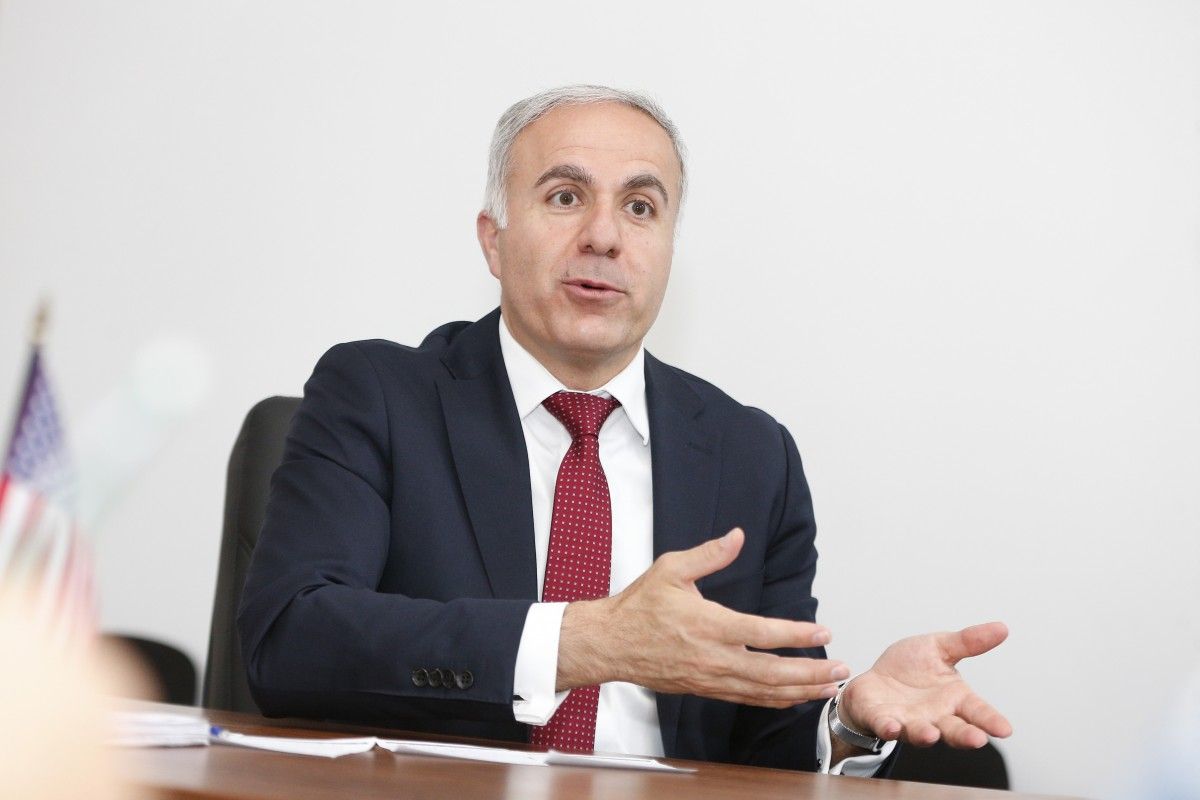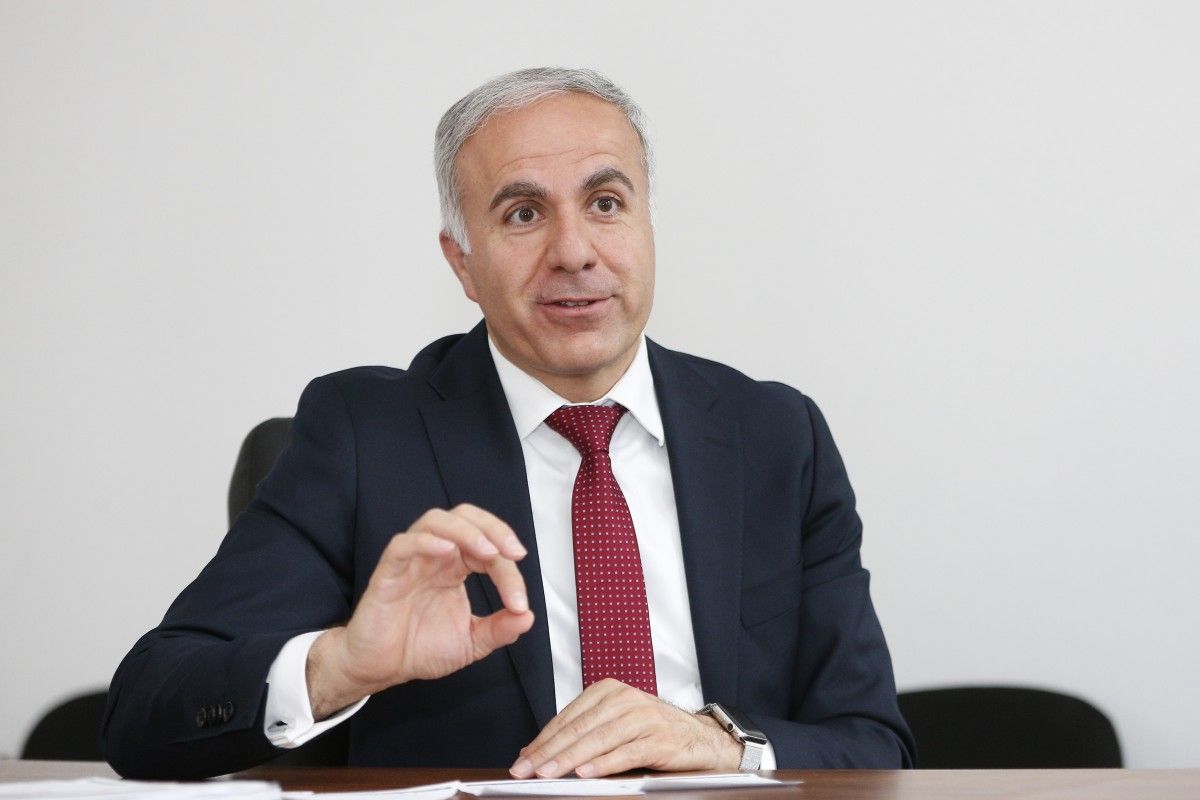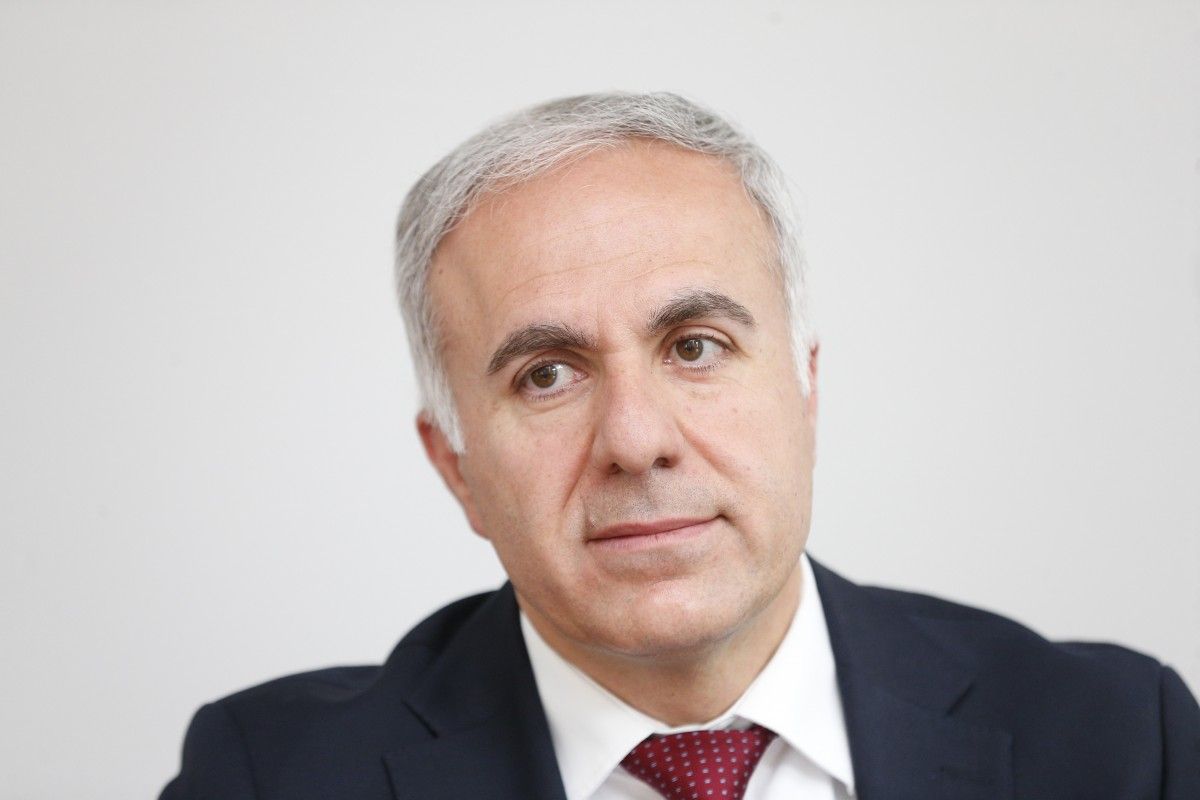
Westinghouse Vice President: There's a lot of bureaucracy in Ukraine
Vice President and Managing Director at the world’s nuclear power giant Westinghouse Aziz Dag in his interview with UNIAN spoke about the prospects of the increase in nuclear fuel supplies to Ukraine and the company’s plans for the period when the current contract with Ukraine expires, also commenting on the global trend for the “green” energy development and the role of nuclear energy in the near future.
Westinghouse Electric Company LLC is a U.S.-based nuclear power company, founded in 1886 by George Westinghouse.
The company has been operating in Ukraine for nearly 17 years, remaining the only nuclear fuel supplier to Ukraine, alternative to Russia. In late March 2017, Westinghouse filed for bankruptcy in the U.S., although the company said the procedure would not affect nuclear fuel supplies to Ukraine.
How will the bankruptcy of the parent company affect the projects by Westinghouse in Ukraine?
The bankruptcy, or the Chapter 11 [of the U.S. Bankruptcy Code] filing, which was initiated on March 29, are not impacting our operations in Ukraine. Westinghouse Electric Sweden, who is a manufacturer of nuclear fuel and the project company, is not in the bankruptcy filing and we continue delivering on all of our commitments.
At what stage is the bankruptcy procedure at the moment?
The bankruptcy process is quite structured in the U.S. and, in fact, it’s one of the best in the world. The purpose of these proceedings is actually to preserve value in the company.
The reason we filed for Chapter 11 is actually not because of our business but because of the two specific contracts in the U.S. - AP-1000 EPC contracts. Earlier this week you saw in the news that Toshiba and Westinghouse had agreed with one EPC contract holder, and as soon as we have agreed with the other side, this will be a huge step in exiting the process. We believe this will be a smooth and fast transition out of the process.
Nuclear fuel services business is solid and healthy, so that actually was never a reason to file for the bankruptcy. We are very confident that we will come out of it stronger and the customers have been supporting us very well throughout the process.
And the business plan of the reorganized company that we have been working on will be submitted by the end of July, which will be an important milestone as well.
Westinghouse works in many countries worldwide, including in Eastern Europe. How is working in Ukraine different from working in other countries? Are there any unique challenges that you have faced here?
For sure, there are challenges in any country, and they are actually different. I’ve worked in Ukraine for many years, and to me, Ukraine is a very good country to work in. I want to emphasize that technological level of the companies, engineers, the society is very high. They are very talented, we have a very good technical dialogue and discussion. The challenges, I would say, relate to bureaucracy and language. We see that there’s a lot of bureaucracy, a lot of paperwork. Sometimes, I get dragged down in administration and paperwork. In fact, the language problem is always a challenge.

What prevents other companies in your industry from entering the Ukrainian market?
I really cannot comment on what prevents other companies from entering the Ukrainian market. Maybe you should ask those other companies. We had decided early on that Ukraine is a very important country for us. It has 15 nuclear power plants, and that’s a sizeable amount, one of the largest in Europe and probably in the world. So to us, that’s an important macro factor to make a decision to enter this market, and we are happy for having done that, and we look forward to engage and invest even more in the country. We are on the path to do so.
Last week, President Poroshenko said he would like to increase the share of Westinghouse fuel in Ukraine to 55%. How realistic is this?
Basically today, we supply to 40% of all NPPs in Ukraine – six out of fifteen units. We have invested in our plant [in Sweden] to be able to supply all of the need. So, we have capacity and capability. Over the last years, we have also proved that performance of our delivery and operations are excellent. So, yes, we are very happy that President Poroshenko has made the statement. We are ready to supply 55%, which would mean eight units, but we could also supply more than that.
Your current contract with Ukraine expires in 2020. What are the company’s plans for the share on the Ukrainian market after 2020?
We are now in the intense discussions with Energoatom and we hope to conclude those discussions by the end of the year if not before, to make sure that we sign another long-term agreement. We hope to conclude an additional contract beyond 2020. How long that will be we don’t know. This is all contingent on our negotiations with Energoatom. Our target before 2020 is a minimum of 55% of nuclear fuel supplies.
Could you elaborate on the negotiations?
Part of the negotiations is also about bringing the local Ukrainian companies to supply components for the fuel fabrication. So that will be part of the discussion as we enter the 2020 contract negotiations.
In what projects are you currently involved in Ukraine and in what projects would you like to take part?
There are basically four major programs that we are involved in here in Ukraine. The first one is the nuclear fuel program, which is probably what we are most famous for. The second one is our participation in the EBRD-financed nuclear security upgrade program worth EUR 1.3 billion.
This is about enhancing and modernizing Ukrainian NPPs. Under this program, we are entering the open competitive projects – we’re winning some and we’re losing some, which is a normal case in the market.
The third program is what I call the power upgrade and efficiency improvement program, which basically means increasing the capacity of the Ukrainian NPPs. We have just recently signed a very small contract, which involves looking at how the fuel will behave in an upgraded nuclear reactor.
For this program, South-Ukraine [Yuzhnoukrainska NPP] unit No.3 is a pilot plant that we are working with as part of the program. We are also cooperating on this program with Ukraine’s Turboatom, a manufacturer of turbines.
And finally, a program which is also very related, is the [Ukraine-EU] Energy Bridge project. This is a unique opportunity for Ukraine to export electricity while you also secure the internal demand.
We can do power upgrade, improve efficiency, which will allow to increase capacity so that you still have the same amount of electricity for the Ukrainian market while you still bring some export revenues to the country.
All of this involves investment on the part of Westinghouse. It involves bringing new technology, new investment to Ukraine, it involves cooperation with Ukrainian companies, and it also involves adding a lot more presence in Ukraine, which we will achieve by increasing our staff in Ukraine.
Could you please tell a little bit more about that pilot project at the South Ukraine Unit 3? What is the timeline for the power unit efficiency upgrade and what is the volume of investment?
It is a little bit early to say in details what the volume and the timeline will be. One of the elements of this feasibility study is to actually look at the fuel and how it will behave under upgraded conditions, meaning we operate at 105% or 110% power. It’s a very important aspect and one of the things you first need to address before embarking on the power upgrade program. Depending on the need of Ukraine, we will be adapting the timeline for such program.
And usually, we do not comment on the values of our investment but it is significant.
As you also know we have another significant investment in Ukraine besides the office here in Kyiv, through our equity ownership in Westron, a Kharkiv-based engineering company. So we are here to stay, and we are here to invest, and we are here for the long run.
We cooperate with local companies but we always enter the market as Westinghouse brand so we don’t go through some middlemen or agents or any business models. And that is a very important factor which shows our commitment to the country, commitment to the market.

How would you evaluate the potential for constructing a nuclear fuel production plant in Ukraine and would Westinghouse be interested in participating in such construction?
That’s a very interesting question and this is a topic that has been discussed for many years, and in fact, we have been involved in various discussions with the Ukrainian side. Before you can actually embark on such investment you have to do the business case. And currently, with the demand and supply, there is really low probability that there is a business case that could justify nuclear fuel manufacturing unless there are strategic reasons, which we would be interested to discuss.
But I do want to emphasize that one first step on that path is to start using Ukrainian suppliers of components for fuel, and that’s what we are doing. So there are companies here in Ukraine we are working with and we are actually currently qualifying to use their components in fuel fabrication.
For sure, if there are any strategic reasons to proceed with such a fuel fabrication facility, we would be more than happy to have that dialogue and discussion.
The last question is a bit philosophical. Looking at the current global energy trends, we see that renewable energy is on the rise. What future do you see for nuclear energy and what should Ukraine be doing today to stay within global trends?
This is a very philosophical question, indeed. I believe that nuclear energy will be living side by side with renewables. In fact, we are not against renewables. We believe that renewables should be out there. What we should focus on is low carbon production facilities, meaning getting rid of gas, coal, anything that is carbon-emitting production.
We believe that nuclear energy has a role to play together with the renewables. If you look at the Paris Agreement, where we have to limit the global warming, I think that cannot be done with just renewables – rather together with nuclear energy. And I think the world will figure that out. I think some of our major partners like China will see that so that they invest heavy in renewables and invest heavy in nuclear energy. And I hope Ukraine can take the same path.
Ihor Orel

